DEI leader shares methods on how to build inclusive engineering communities
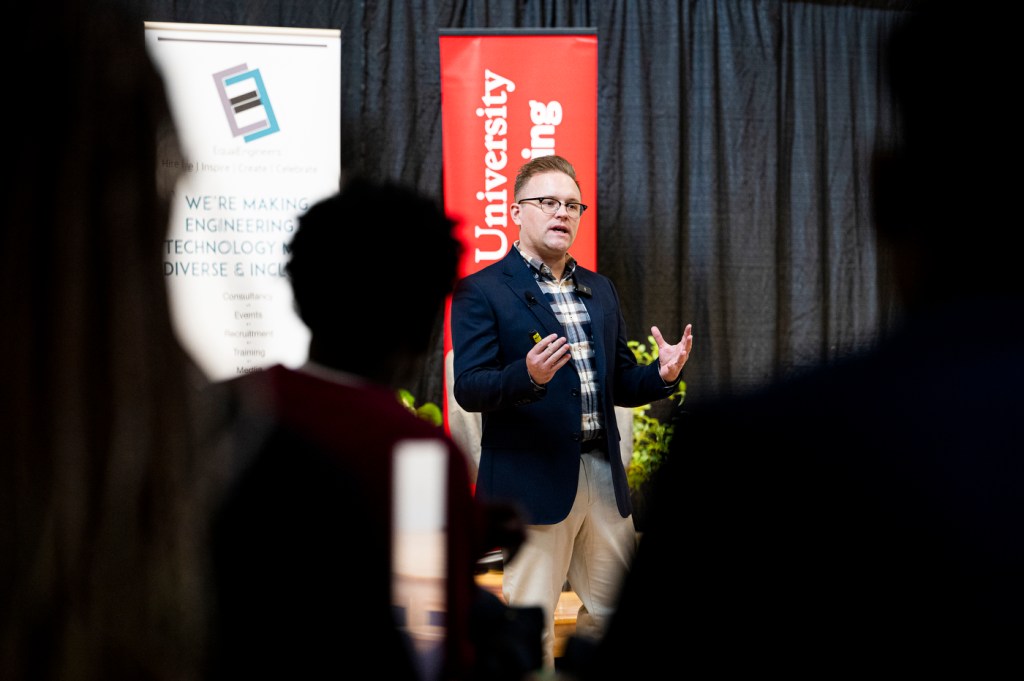
In the numerous talks Mark McBride-Wright has given to workplace leaders about the value of equity and inclusion, there’s one image he shares with the groups that tends to cut to the heart of the issue, he says.
“The most powerful slide I use with leaders is a picture of a foot walking on eggshells,” McBride-Wright said. “It articulates how people feel with groups they don’t belong to. It might articulate how you feel when you start thinking more latterly about what you are not.”
But it’s by working through that initial discomfort where real progress can be made, McBride-Wright said Wednesday afternoon in a fireside chat with Gregory Abowd, dean of Northeastern’s College of Engineering. A chemical engineer by profession turned diversity, equity and inclusion leader, McBride-Wright was invited to speak as part of the university’s series of events celebrating National Engineers Week.
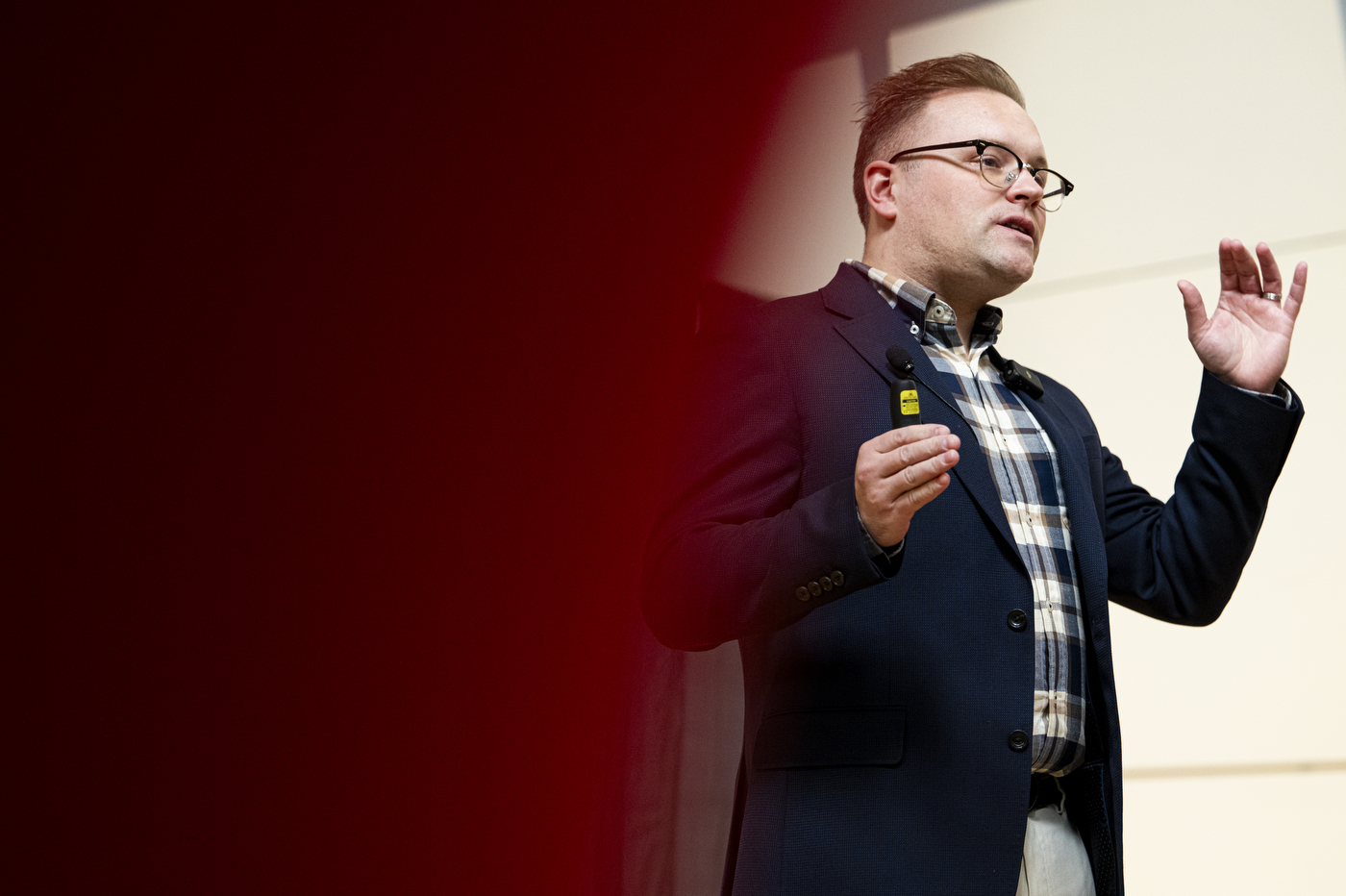
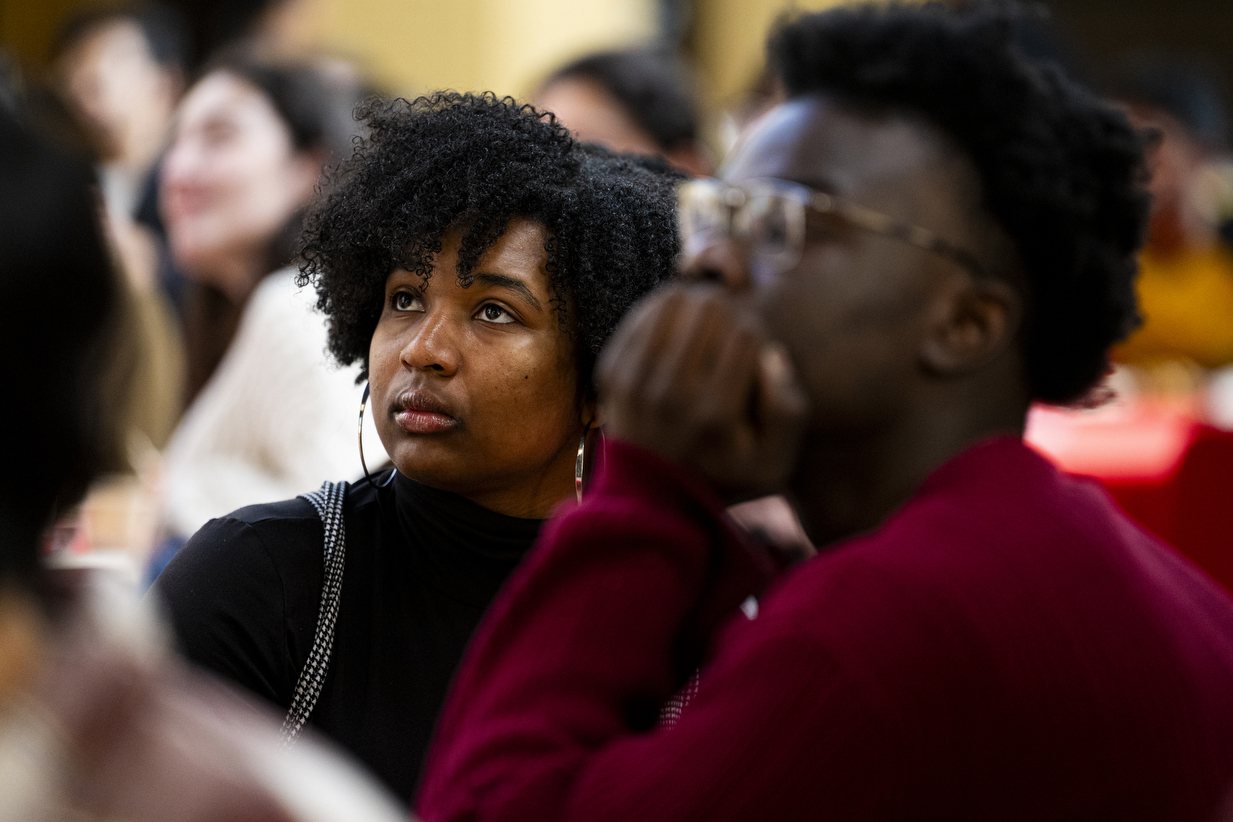
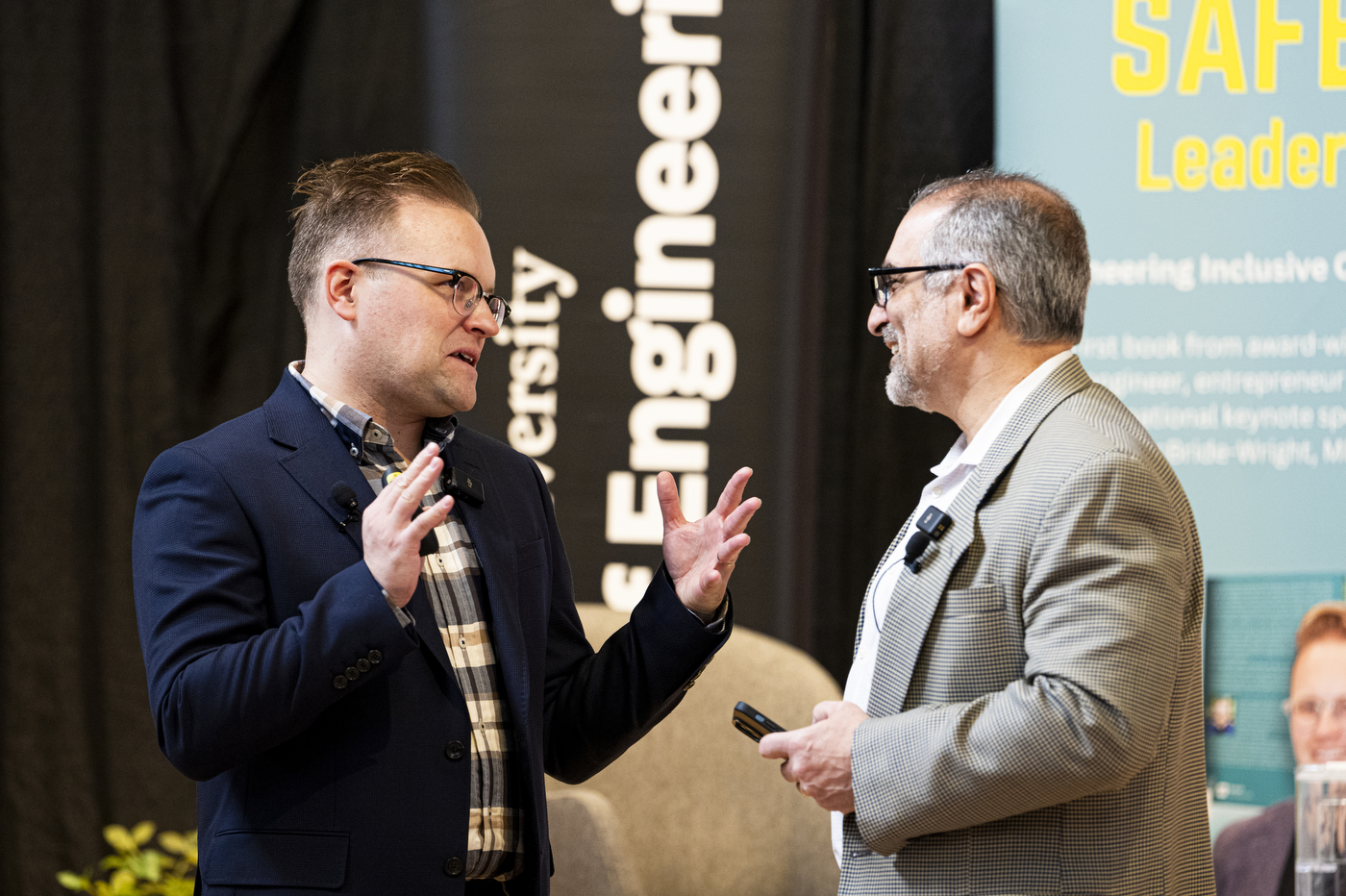
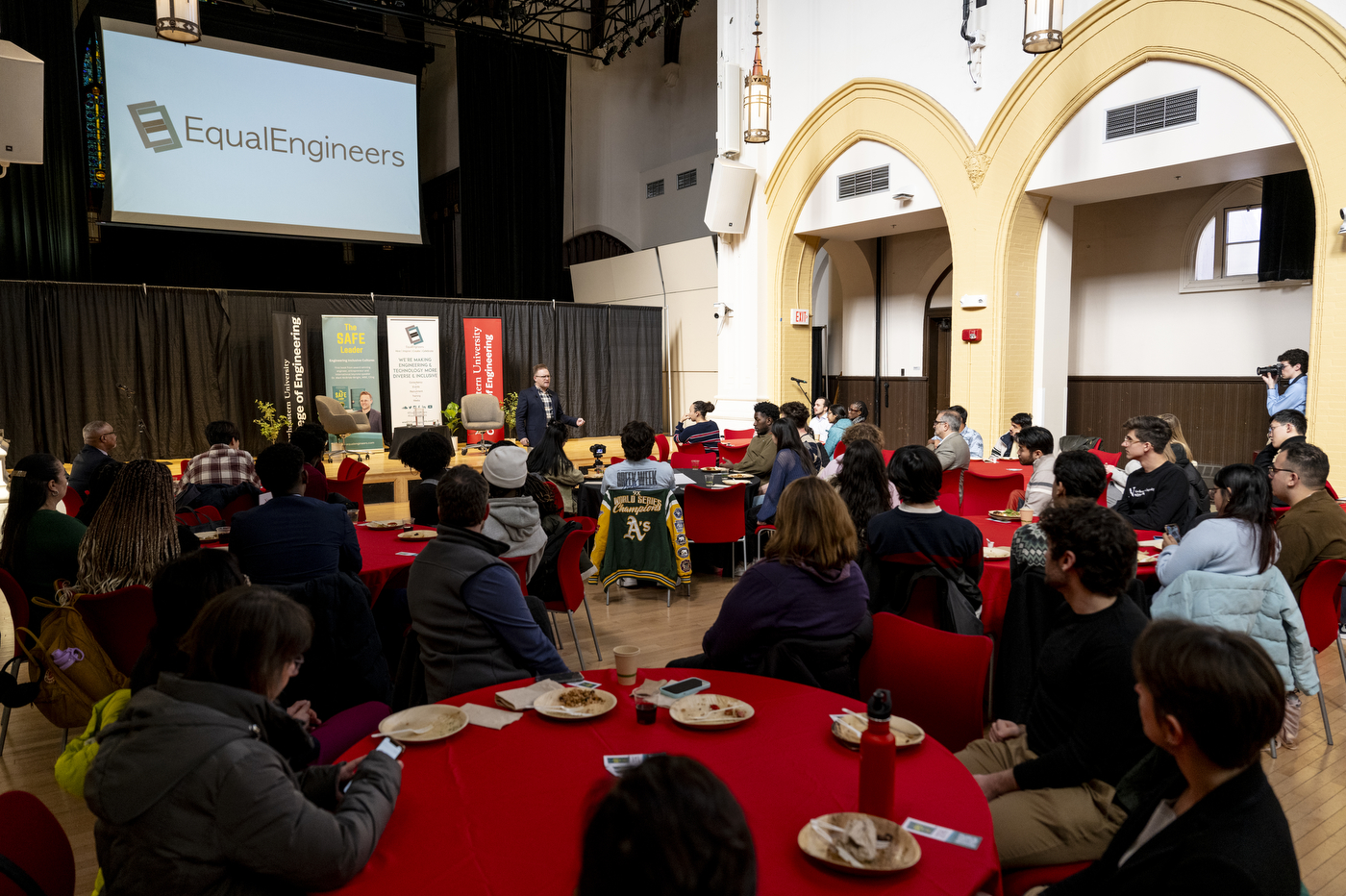
McBride-Wright is the founder and CEO of EqualEngineers, a business consulting firm that works with engineering companies to make their workplaces more inclusive. He is also the author of “The SAFE Leader: Engineering Inclusive Cultures,” which is being released next month.
Abowd asked McBride-Wright to share some advice to Northeastern students securing their first co-ops, and how they should navigate the job search process while staying true to their identities.
“I would say be honest and open in the interview process, especially if you need any sort of adjustments or accommodations if you have some sort of disability or something that would make the process more aligned for you,” he said. “If you are not open and true in the application process, then you’re not really truly evaluating the employer in terms of how authentic they are and if they can support you.”
Featured Posts
It’s also important to do extensive research on a company, paying particular attention to their DEI efforts and other principles that may be important to the individual applying.
McBride-Wright also gave advice to employers looking to increase their diversity.
“I would say be creative in your outreach,” he said. “Partner with universities to try and fill your talent pipeline. … Get involved with engineering curriculum, come in and give guest keynotes speeches. Get involved with who the students are, so when the applications show in your HR team’s inbox, you already know what they are like.”
He also challenged them to reevaluate the way engineering employers assess qualified employees.
“We need to think long and hard about the filters that we’re putting in to try and make the sifting process easier and recognize that some methods like assessment centers and psychometrics tests aren’t always the most conducive to people with certain conditions,” he said.
McBride-Wright offered a simple piece of advice for anyone looking to be more inclusive: Make a concerted effort to understand the perspective of individuals from underrepresented backgrounds.
He used his own experience setting up his initial networking group focused on supporting engineers who were part of LGBT+ community, Interengineering.
“I didn’t know any trans people,” he said. “All I knew was stuff that I’d read in the newspaper, tropes from growing up, of who trans people are, and that was it.
So, McBride-Wright went to work reaching out to people on LinkedIn, attending transgender networking events, and broadened his perspective.
“I’m certainly a lot more informed than just what I’ve read in the media,” he said. “I have lived experience from a diverse group of people.”











